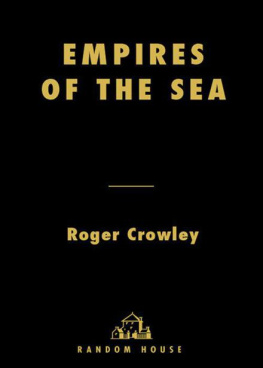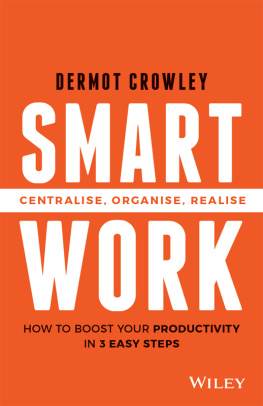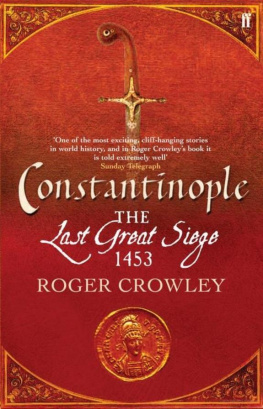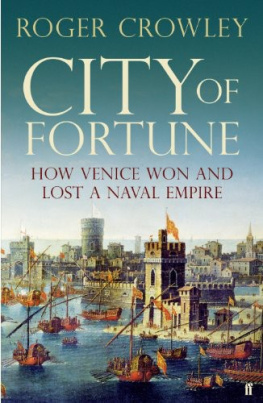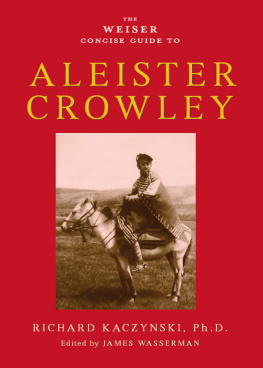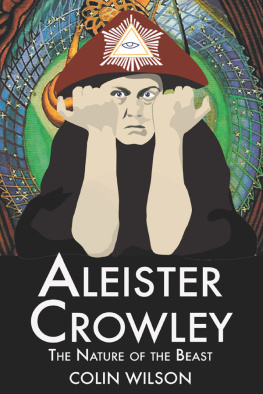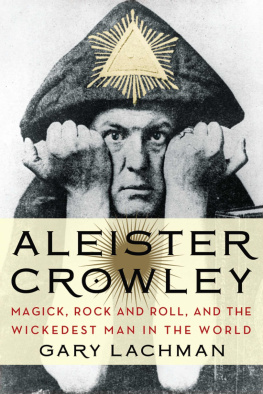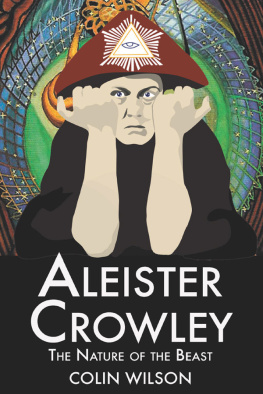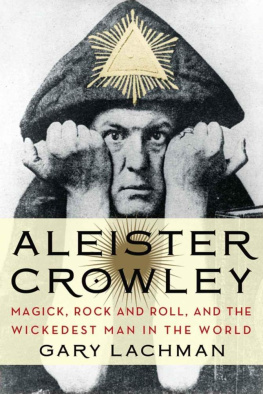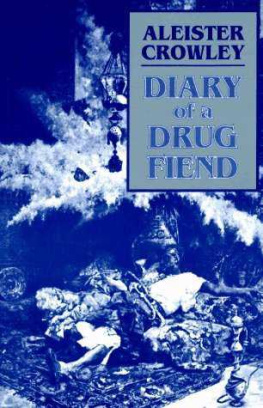do what thou wilt shall be the whole of the law
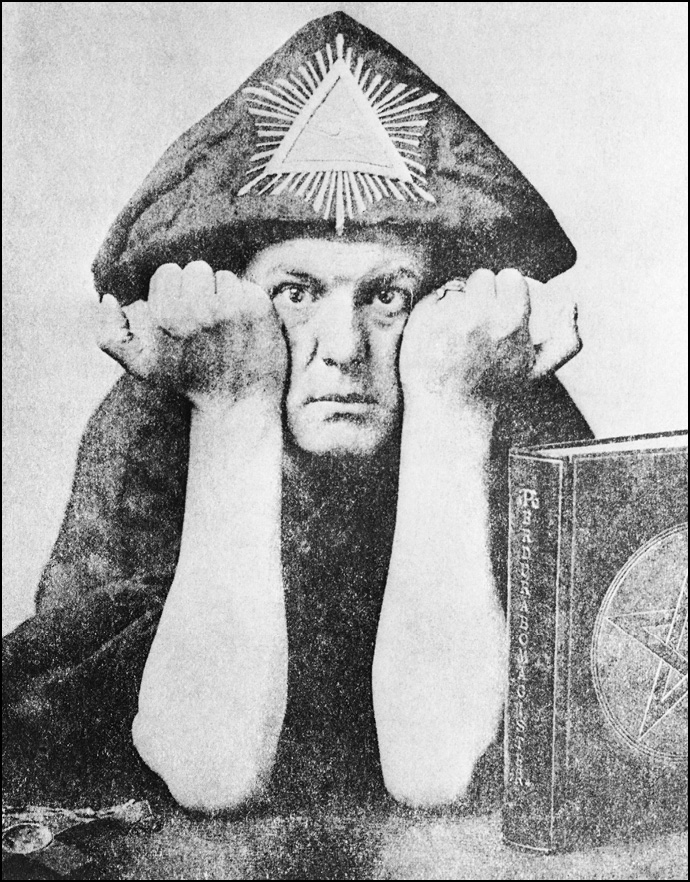
Introduction
Aleister Crowley (18751947) was a living contradiction. A shameless self-publicist, he revelled in shocking polite society and living up to his image as the wickedest man in the world. And yet, for all his baiting of those he despised and goading of those he considered his intellectual inferiors, he professed and exhibited a profound understanding of practical magic which few occultists of his era could equal. Furthermore, he possessed the courage to venture beyond the visualization exercises and Masonic/Rosicrucian rituals practised by his contemporaries in order to cross the abyss, the symbolic chasm between the Conscious and Unconscious, and explore the realms of the inner and upper worlds.
His knowledge of practical magick (his spelling), and his understanding of the other realms and realities described in the texts collected between these covers, reveals that he was not a man to be satisfied with speculative theories and assumptions. He craved direct personal experience of the Mysteries as the Western esoteric tradition was known at that time, and he risked his life, and some might say his sanity, in pursuit of the secrets of life and death that can only be glimpsed during heightened states of awareness.
He was largely responsible for making the process and practices of ceremonial magic accessible to succeeding generations, whose secrets had been concealed between the covers of arcane grimoires since the Middle Ages. He also redefined magic for the modern age in stating, Magick is the Science and Art of causing Change to occur in conformity with Will. [Magick In Theory and Practice] It is a definition that is universally accepted to this day.
Crowleys uncompromising character was formed during his comparatively privileged childhood. He was born Edward Alexander Crowley in the Warwickshire town of Leamington Spa on 12 October 1875. The only child of strict, puritanical parents, he was the focus of their attention and yet grew to despise his mother, Emily, a religious hysteric whom he later described as a brainless bigot. His father, Edward, died in March 1887 when Aleister was entering his teens, leaving the adolescent unchecked by paternal influence and free to practise his new-found philosophy of amoral self-indulgence.
The death of Crowleys father drove his mother to seek succour in religion, her zeal serving to compound his belief that religious mania was a form of insanity. It was his mother who reviled him as The Beast of Revelation after she caught him seducing their maid. He was just 14 at the time, if his account is to be believed, but it is impossible to distinguish fact from fiction when it comes to the Crowley myth, for so much of it was of his own making.
Sex, his mother warned him, was the devils creation and he would be eternally damned if he succumbed to temptation. Absolving herself of responsibility, she sent him off to boarding school, first at Malvern then at Tonbridge in Kent, where he explored his burgeoning bisexuality and wrote reams of morbidly pornographic poetry. As no self-respecting British publisher was willing to publish the poems, Crowley paid to have them printed abroad, as he was to do with several later works included in this present collection, ensuring that the first editions became highly valued and sought after collectors items.
Fortunately, he had the means to indulge his passions, having inherited a small fortune from the family brewery business, Crowleys Alton Ales, which he spent freely during his early years as a Cambridge undergraduate. He entered Cambridge in 1895, having finished his public school education in July the previous year at Eastbourne College.
At Cambridge, he discovered occultism, devouring A. E. Waites The Book of Black Magic and Of Pacts and MacGregor Mathers translation of The Kabbalah Unveiled in a single sitting, or so he claimed. Both books had a profound influence on Crowleys own writings, although characteristically he later dismissed them as pretentious. Success in magic as in all things, he believed, depended on the ability to awaken ones creative genius by visualizing what one wished for and then bringing it into being.
One of his earliest attempts at ceremonial magic saw him cursing a Cambridge professor who had refused to allow his headstrong student to stage a bawdy play. According to Crowley, he gathered a group of fellow scholars on the night of the full moon to witness the ritual which involved sticking pins into a wax effigy of the academic. However, one of his fellow students lost his nerve and tried to seize the doll. The pin stuck in its foot and the next day the master tripped on the stairs and broke his ankle. Crowleys development as a magician was swift and remarkable, due mainly to his unwavering self-belief and his single-minded desire to attain recognition as an adept.
In November 1898, he paid the 10 shilling membership fee and was accepted into the outer circle of the most fashionable fraternity of practising occultists in Victorian England, the Hermetic Order of the Golden Dawn. The Order boasted several eminent members of the establishment, among them the visionary poet W. B. Yeats, who later described Crowley as an unspeakable person, and senior member Allan Bennett who would be influential in introducing Buddhism to Britain. Bennett became Crowleys mentor and live-in private tutor in a luxury flat they shared in Chancery Lane, London. It was Bennett who introduced Crowley to the use of drugs in ceremonial rites and who in vain tried to persuade his pupil to follow his ascetic regime. But Crowley refused to moderate his behaviour to the consternation of the elder members who found his egotism intolerable and who disapproved of his open bisexuality.
Crowley was unapologetic. He soon despaired of learning the ageless secrets from his elders on finding that the membership was composed largely of former freemasons who were as dogmatic in their rituals as any organized religion or private club. They in turn resisted his persistent demands to be initiated into the inner Second Order to which he believed himself entitled and in 1904 in a fit of pique he disregarded the oath of secrecy he had sworn before the brotherhood and dragged the Orders leader S. L. MacGregor Mathers into open court to the amusement of the tabloid press and their scandal-hungry readers. The resulting publicity led to the dissolution of the Golden Dawn to the revulsion of his former associates, who never forgave him for going against the central tenet of their magical craft, which required initiates To Know, To Dare, To Will and To Remain Silent.
A year after joining the Golden Dawn, Crowley had purchased the Scottish estate Boleskine House on the shore of Loch Lomand and declared himself Laird of Boleskine. He intended to make it his private sanctuary where he could perform ceremonial magic far from prying eyes. But he was too restless to settle and was soon on his travels, journeying to Mexico, Ceylon, Burma and India, where he studied Yoga and in 1902 attempted an ascent of K2 (Kanchenjunga), the worlds third-highest mountain in the company of the eminent climber Oscar Eckenstein.
From Nepal, he made his way to Paris where he established himself as a painter, becoming acquainted with sculptor Auguste Rodin and befriending Gerald Kelly, a future President of the Royal Academy. On returning to Boleskine, he became enamoured of Kellys recently widowed sister Rose, an emotionally unstable young woman whose family was intent on arranging a second marriage of convenience. She begged Crowley to help her and he agreed to elope with her. They were married on 12 August, 1903. During their honeymoon in Cairo, Rose demonstrated an unexpected ability as a medium, channelling the text of what would comprise the first three chapters of


